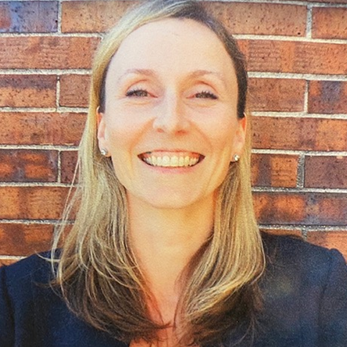Balancing personal self-care needs with those of the students and clients we serve in the midst of dual pandemics (1 CE)
Presenters: Kristen Newberry, Psy.D., Leah Horvath, Ph.D., Gwen Grant, Psy.D.
3:30 PM - 4:30 PMWed
Registration Required
Your registration must include one of the required registration options to attend this session. [ Details ]
Speakers
 Newberry, Kristen Psy.D.
Newberry, Kristen Psy.D.
Associate Professor, Director of Internship Training, The Illinois School of Professional Psychology
National Louis University
 Horvath, Leah Ph.D.
Horvath, Leah Ph.D.
Associate Professor, Program Director, The Illinois School of Professional Psychology
National Louis University
Self-care among psychologists and psychologists-in-training has become a topic of growing significance over the recent years. The importance of self-care, for example, is reflected in the American Psychological Association’s determination that self-care is an ethical standard maintained in part to prevent psychologist impairment and misconduct (APA, 2017). Self-care practices have been associated with less stress, life satisfaction, self-compassion, (Colman et al., 2016) and lower stress, improved mood, and greater sense of well-being for psychology trainees (Zahniser et al., 2017). Self-care engagement and stress is also particular to the developmental stage of the psychologist, with early career psychologists reporting higher levels of burnout and emotional exhaustion compared to their older peers (Rupert et al., 2015). Early and mid-career psychologists are also less likely to engage in self-care behaviors such as work-life balance, daily balance, and professional development (Dorociak et al., 2017). The recent events of the past several months, in particular, the rise of continued social unrest related to issues of racial injustice along with the ongoing COVID-19 pandemic, have undoubtedly led to increased feelings of stress for the general public and professional psychology community. Many psychologists and trainees alike are adapting to changes such as provision of remote services and decreases in referrals (APA, 2020), managing their and their clients reactions to the ongoing struggle of racial disparities within our country (Marrast, Himmelstein, & Woolhandler, 2016), and balancing new work-life-home demands such as remote schooling. The purpose of this continuing education presentation is to discuss the current challenges and strategies used by psychologist-educators and supervisors as we attempt to honor our needs along with the students and clients we serve.
Learning Objectives
Participants will be able to:
1. Discuss self-care needs specific to psychologists facing the current dual pandemics.
2. Identify self-care strategies specific to the current time which they can implement into their personal or professional lives.
3. Discuss self-care needs specific to psychologists-in-training in the midst of dual pandemics.
4. Identify and apply self-care strategies for use with student trainees in academic or clinical training programs.
